Immersive Technologies for Learning
Global experience with virtual environments has skyrocketed in 2020. “Shelter-in-place” is our local term for working, learning and socializing remotely. Regardless of how it’s labeled, we have dramatically increased the proportion of communications and interactions that are NOT face-to-face. We’ve used virtual presence to share screens, to create meaning. We’ve learned new cues for taking turns in telepresence, and we’ve tamed the nests of cords and accessories that power and personalize our various devices.
In this first-of-kind, the Very Virtual Retreat we will use existing and emerging technologies to leverage experiences and insights from the mediaX membership community of scholars, researchers, instructors and learners. With thinking tools, demonstrations and working sessions, we’ll reflect on what we know and what we’d like to know about using immersive technologies to collaborate, discover and learn.
July 30, 9:00am PACIFIC (Check-in Begins at 8:45am)
IMMERSIVE TECHNOLOGIES FOR LEARNING (SESSION IS FULL)
Bryan Brown – Contextual Learning for Teens
Anna Queiroz – Enhancing Attention and Engagement in VR
Haibo Zhang – Learning Through (Virtual) Experiences
Yuji Nakajima – Immersive Learning with XR Technology in Manufacturing Workforce
Hong-Dun Lin – Exercise Through Integrating On-line and Off-Line Environments
Tomás Nascimento – Using Immersive Environments for Transportation Training
Additional Very Virtual Retreat In-world Sessions.
July 27, 5:00pm PACIFIC (Check-in Begins at 4:45pm)
IMMERSIVE TECHNOLOGIES FOR COLLABORATION (SESSION IS FULL)
Dennis Wall – Enhancing Emotional Reciprocity
Parvati Dev – Crossing the Chasm with Crisis Communication
Renate Fruchter – Hands-on (Virtual) Design and Engineering
Ryota Yamada – Role Choices for Robotic Teammates
July 28, 12:00pm PACIFIC (Check-in Begins at 11:45am)
IMMERSIVE TECHNOLOGIES FOR DISCOVERY (SESSION IS FULL)
Jeremy Bailenson – Perceptions of Embodiment During Immersion
Walter Greenleaf – Designing for Emotional Response
Kenji Suzuki – Imagining Alternatives with Immersive Engineering
Pearly Chen – Discovery through Content Creation and Curation
Ryan Burns – Educating the Sports Community About Concussions
Presenters
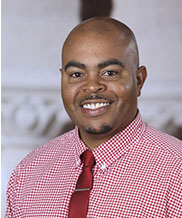
Bryan Brown is a professor of teacher education. His research interest explores the relationship between student identity, discourse, classroom culture, and academic achievement in science education. He focuses on the social connotations and cultural politics of science discourse in small-group and whole-group interaction. Additionally, his research work in science education examines how teacher and student discourse serve to shape learning opportunities for students in science classrooms. Dr. Brown's work in science education in urban communities focuses on developing collaborative curricular cycles and classroom pedagogy based on developing discourse intensive instruction for urban learners. His research has expanded beyond his focus on science education, to include issues of college access in urban communities.His recent work explores how classroom and school culture shapes access to higher education. He conducts mixed methodological work exploring how race, language, and culture impact students learning in urban science classrooms.
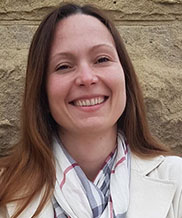
Anna Queiroz is a researcher at the Virtual Human Interaction Lab at Stanford University. Anna is in charge of the educational efforts using virtual reality at the Virtual Human Interaction Lab at Stanford University. Her research focus on cognitive and effective implications of new media and technology in learning, attitude and behavior change. She is completing her PhD and received her M.S in Cognitive Psychology from University of São Paulo. She holds a Behavioral Medicine degree from Federal University of São Paulo and a certificate in Education from Harvard University. She has been actively working in education since 2005, teaching at universities and leading EdTech projects in several companies and non-profit organizations.
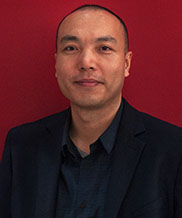
Haibo Zhang is the Dean of Guangzhou QiTian Technology Co. He’s been trying to use technology to improve the learning and creativity of primary and secondary school students. Through follow-up, the first thing to be promoted is the ability to “discover problems”, followed by the ability to “solve problems”. Haibo plans to help students break through the barriers of traditional thinking and achieve self-improvement through the study of Design Thinking and the application of teaching practices.
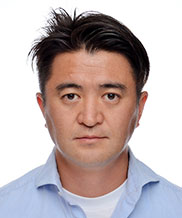
Yuji Nakajima is a software engineer at Fujitsu limited. He is leading the development of Industry 4.0 manufacturing applications within Fujitsu. Yuji designed and developed several applications designed to solve the issues in complex assembly operation, using MR, AR/VR technology. In these projects Fujitsu succeeded in increasing the productivity and quality of the operations while reducing the training costs. Yuji earned his Bachelor of Engineering degree from Shibaura Institute of Technology at 2003.
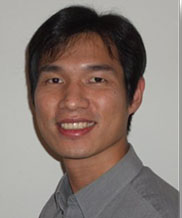
Hong-Dun Lin is the Director (R&D), Department of Cultural & Sport Technology, Service Systems Technology Center with the Industrial Technology Research Institute in Taiwan. Dr. Lin focuses on advanced technologies and developing of relevant products in Healthcare/SportTech device and immersive system integration. Dr. Lin works on designing and building the smart wearable system with unique non-contact mini-sensing technology, promising Nano-silver materials and micro-electrical stimulation solution. Currently, he integrates the immersive interaction system for innovative sport and cultural service applications. He earned his PhD in Electrical Engineering from Chung-Yuan Christian University and spent three years at the University of California, Los Angeles as a Post-Doctoral Fellow.
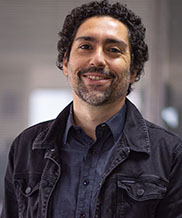
Tomás Nascimento is a senior technician with SEST SENAT in Brazil. He has worked on projects such as the acquisition of driving simulators, which included the development of innovative educational and technological proposals and the acquisition of more than 130 driving simulators throughout Brazil. Tomás graduated with a degree in communication and has a Masters in Sociology and is a specialist in Business Management and Public Policy Management. In addition he's done International Agreements with Natural Resources Canada - NRC and the Environmental Protection Agency - EPA in order to offer courses with international certification by the Smartway (USA) and Fleetsmart (Canada) programs